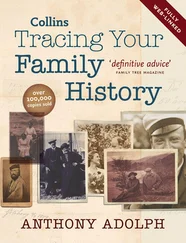Afterward, he would come inside, and if I was still awake, I heard their noise. My mother made a low besotted groan, and it took off from there, took off and ascended, and became like the sound of her dying. I associated those sounds with violence. I was young, and it scared me, but since in the mornings she was all right, even cheerful, after a while I stopped worrying.
Still, there were always two things about my father to consider. One was the nights when he elicited those sounds from her, and then, afterward, in the morning, by some alchemy I couldn’t figure, made her happy. The other was what he did on Saturdays, when men came to our house. In addition to his work in the accounting department of Vanderbruek, the defense plant he’d been hired at out of college, and at which, over the course of fourteen years, he’d steadily risen, my father opened our house on Saturdays to men who wanted their taxes done, or men who had special financial problems, “tricky things,” he called them. They were an odd assortment; the only thing that held these men together was the ridiculous way they all dressed, half in the world of weekend chores, in flannels and chinos, and half in the world of business.
Something in my father’s bearing, I knew, made them want to appear respectable.
I would sometimes pass the window of my father’s office, which faced our backyard, on the pretext of throwing a ball up into the air and catching it, and, in the light over my father’s desk, always on, even on the brightest day, watch his alert, handsome face staring into the face of another man, some doughy, awkward stranger, with an intensity he only rarely directed at my mother and me. It was as though the man had just said something, and my father wanted to stop and ask him to explain. But I do not know how to tell you it wasn’t a word or a piece of business my father wanted explained, but something else, a hazy thing that the man embodied, so that while he was listening, I knew my father wasn’t really listening at all.
After the men were gone, there was another waiting to be endured. For the rest of the afternoon, my father sulked. Sometimes he took off in the car. I imagined he was chasing down one of the Saturday men to point out an error in judgment. Supper was always eaten in silence. Later, in the evening, he would go out and consult with himself in the backyard. His Saturdays followed that pattern, without fail. But just before dusk, in the spring and summer, the boys on Candace Road always gathered on the street to play Wiffle ball. It was a quiet street, full of small houses into which sound penetrated easily. By the time the game was in its second or third inning, the fathers had all come out of their houses to watch.
They were not, for the most part, successful men. They were tire salesmen, mechanics. Among them was a retired Army sergeant. No visible trajectory attached to their lives; the neighborhood houses lacked the silence and absences of ambition.
But at dusk on summer evenings, they came out and rested inside a moment of grace. Their sons on the quiet street. The soaring of the Wiffle ball, which, even sailing far, would break no windows. The smell of lilacs, apple blossoms in May. The fall of light in a suburban neighborhood early in the reign of John F. Kennedy. I do not want to romanticize, but there it was.
Frequently, my father was the last to come out. Even when he did, his mood was often such that he didn’t greet the other fathers, merely stood there, stiff and in the white shirt he had worn to prepare men’s taxes. But even he was capable of being seduced by this scene. At a certain point his shoulders settled, he’d light a cigarette, and the compulsion to leave—so strong, while reined in, so much of the time—leaked out of him.
Even guarding second base, I sensed this. In this game, in the perfection of boys at play, lay my power.
In October of that year, Uncle John’s house was completed, and he held a party in celebration.
We’d often visited Uncle John and Aunt Emma in the two-family they lived in on River Street. Their sons were Bobby and George, who used to entice the younger cousins outside so they could piss off the roof onto them. But that night, when my parents descended the stairs and noticed that I was wearing my everyday clothes, a look crossed their features, as though there was something profound I didn’t get.
We had seen John’s new house in daylight, the most solid and finished of the several houses then in development, split-level houses surrounded by bulldozers and, in mid-fall, by heavy, dug-up mud. John’s house had pillars and second-floor tiers and a facing of pink-tinted marble. A large effort had gone into making it grand, and my father, in the past, whenever he’d driven to the Hill to check things out, had come back and voiced a certain skepticism about what was going on up there. “Versailles,” he had taken to calling John’s house. He splayed his lips and made a sound, which was frequently followed by a call to the architect of our own house, to see if ours couldn’t be simplified.
At night, though, the house underwent a kind of transformation. From far away, from half a mile down the hill, though the road was still unpaved and deeply rutted, we could begin to see the lights of John’s house coming at us through the trees. My mother gasped when we were close. John had set up spotlights outside the house; what they lit appeared larger and more imposing even than it was. Surrounding it, in the dark, were high trees, so that the house poked out of the wilderness like it was making some supremely confident announcement of itself, and I remembered what my father had said about John’s ambition, to make a neighborhood of Italians, and it began to make sense. I could not have said exactly what I apprehended when I looked up at the finished house, but I remember something quickening in me.
In the basement—carpeted, immense—there was immediately a competition for us. Who would we choose to sit with? The aunts’ arms all went out, as if to grab us, and when they shouted greetings, it was as though with one voice. There were three of them, including Emma, John’s wife. My mother’s sisters all had black hair, long and rich and falling out of the bobby pins and clips with which they tried to pull it back. That hair was like a shout in the dark. Family lore had it that they were all unhappy women, but they never seemed that way. My father explained it to me: “They came from an island, Luca. An island in Italy. You have to understand this. They were little girls, and they lived in Paradise. And then their father took them here.” (My mother, the youngest, was the only one born in this country.) “And since then, it’s been nothing but complaints.” Then he always added, low, conspiratorial, not for me to repeat: “Maybe it wasn’t really Paradise, you understand? But let’s keep that our secret.”
I tried. But it was difficult sometimes, to believe in the vaunted unhappiness, or to see it as the central thing about them. They were vivid, even in their voiced dissatisfactions, and they stuck together in a way I admired.
Emma, in her forties, was pregnant then, tired out by the series of miscarriages that had come between Bobby and George and this late, last child. She sat with her sisters Carmela and Lucy on the couch. Carmela and Lucy had both been wild girls, and they had married the sorts of men wild girls married, sailors and musicians. They owned small houses, packed with children, and not until that night had there been any indication that one day these lives would prove to be inadequate. But here, in this house, came the first suggestion of the movement of history and, with it, a kind of panic.
As soon as we entered, they tried to pull my mother down with them, onto the couch, to assert that nothing really had changed, but my mother resisted their entreaties, moved past them, toward John. He rose from his BarcaLounger. He smelled of aftershave and wore a smoking jacket, with patches of suede at the cuffs. He had a large, smooth head, a businessman’s head (he ran a fleet of trucks), with surprising blond hair—surprising, anyway, for an Italian—brush-cut, so that you could see the scalp through it. He planted a soft kiss on my mother’s cheek, and then looked at my father, who remained at a distance, as if asking him to come closer, to stand with him in a kind of solidarity of success.
Читать дальше












